Real Estate (Regulation & Development) Act & Real Estate Regulatory Authority (RERA)

Real estate is one of the oldest business and investment option known to mankind. Indian real estate has seen many reforms in the past. Especially the British made a remarkable contribution to Indian real estate industry by property survey across India and implementing basic systems for property identification, measurement, documentation and transfer.
After independence, these systems were refined from time to time by both the Central and State governments. But without a structured regulating body, there were ever increasing disputes between the property developers / builders and the property buyers / investor due to grey areas in the sector like infinite delay in project completions, build-up area calculation, common space ownership, construction quality issues, price escalation, lack of basic amenities, payment delays or defaults, etc.
What is Real Estate (Regulation & Development) Act ?
The major and much needed reform was brought by the Government of India in 2016 through The Real Estate (Regulation & Development) Act to safe guard the interest of both the developers / builders and property buyers / investors by regulating the real estate industry with increased transparency, to eradicate the frauds and to give boost to this sector in a massive way. This act came into force from 1st May 2016 after approval in the parliament during the month of March in the same year.
The key provisions of this act are mandatory disclosure of all information of a real estate project, restriction of property advance payable by a buyer, specimens of contract documents, clarification / definition of terms like carpet area, mandating builders / developers to keep 70% of the payments received from buyers in a escrow account and restrict them to use it only for the intended purpose, timely delivery, penalties for delayed delivery by the builder / developer and delayed payment by the buyers, structured mechanism for project monitoring and speedy redressal of disputes.
Prior to this act, the buyers had to approach different authorities like consumer court, civil court, etc to find a relief for their grievances under different acts like Consumer Protection Act 1985, Indian Contract 1872, etc which is not a speedy process and complex in nature.
What is Real Estate Regulatory Authority (RERA) ?
Under the provision of this act, each state government has formed their respective Real Estate Regulatory Authority (RERA) in 2017 to implement and monitor this act across their geography. For Example, it is TNRERA in Tamilnadu (https://www.rera.tn.gov.in), K-RERA in Kerala (https://rera.kerala.gov.in), MahaRERA in Maharashtra (https://maharerait.mahaonline.gov.in), Karnataka RERA in Karnataka (https://rera.karnataka.gov.in), HPRERA in Himachal Pradesh (http://www.hprera.in), etc were formed.
Monitoring the real estate projects, regulating them and adjudicating the disputes related to it within its territory is the primary objective of respective RERA in their states. They also aim
- To introduce professionalism and set common standard for the Industry in the country
- To improve their real estate markets, transparent real estate business transactions and the accountability of both property developers and buyers.
- To reduce the project delay and real estate frauds
- To improve the information sharing by the project builders / developers with the property buyers
RERA approval for a project is entirely different from the planning permits, building license or construction approval by different state government bodies of the respective state like DTCP / CMDA in Tamil Nadu, MDDA in Uttarakhand, etc – Registering with RERA is in addition to such clearances and in fact all the documents related to all the approvals / clearances related to a project by different state government bodies to be produced to RERA and displayed in its website.
Who should Register with RERA?
RERA applies to builder, developer, contractor, promoter, any development body who constructs building/apartment or develops land for the purpose of sale and real estate agents or agencies.
Upon registration of a project with RERA, by default the builders / developers are bound by the RERA rules stipulated with respect to documents / information display, status update, fund management, commitments, penalties & refund norms, dispute redressal mechanism, etc
What if a Real Estate Project is Not Registered with RERA?
Registration of a real estate project by a builder / developer in India with respective RERA is mandatory to advertise, market, book, sell or offer for sale or invite persons to purchase it in manner - be it residential, commercial, plot, house or apartment project. Under section 59 of the Real Estate (Regulation & Development) Act 2016, if a builder / developer fails to register their project with RERA then the respective RERA can impose a heavy fine on them (a specific percentage of the project value) and if they continue to do so, RERA can impose further fine and or 3 years imprisonment on them.
In certain states, the circulars have been issued to gross root level so that the property registering authorities are instructed ‘Not to Allow any Registration’ of plot or flat or house, it is part of a real estate project which has not been registered with RERA.
However, RERA registration and approval is not required for
- Residential or commercial projects on land area less than 500 Sq. M
- Apartments with less than 8 units in all phases
It is interpreted that if a builder / developer construct a project for leasing or renting it out and not for selling it, such project do not require RERA approval – It is a remote case and which needs to be clarified with respective RERA for advertising such project for rent or lease.
Why to Invest in a RERA Project ?
On a nutshell, by investing in a RERA approved project the property buyer can be assured that
- the necessary statutory clearances for the project are obtained properly without which the builder / developer can’t sell the property
- the property title should be clear and if not they are eligible to claim compensation from the builder / developer at any point of time
- their payments to the builder / developer is been spent for the specific project alone and it is not siphoned out by them for other projects and reduced risk of their bankruptcy
- the property will be delivered on time and if there is any delay (except agreed force major conditions) in property delivery, the property buyer have the options of either to withdraw from the project with full refund or to collect compensation in the form of interest for the delay by the builder / developer
- there is no hidden charges to be paid since the key terms like ‘Carpet Area’ are clearly defined by the RERA which was a grey area earlier and each builder use to have their own calculation method
- the promised size of building and amenities will be delivered by the builder without fail. If there is any mismatch noticed, the property buyer has the right to withdraw from the project and claim refund with interest from the builder / developer
- the quality of construction will be up to the mark since the builders / developers are fixed with a liability to repair the structural defects, if reported within 5 years time of possession given
- there won’t be any change in the project without notice as the builder / developer requires the approval of majority of the buyers for any change in the project from the promise made
- the dispute redressal will be transparent and on fast track, if there is a consumer grievance
How to find RERA Approved Projects?
The investors / property buyers can check the respective state government RERA websites for the RERA approved projects in those regions. The information in these websites by a builder / developer is not just a display it is a declaration by them.
A RERA approved project promotion / advertisement will have the RERA registration number of that project on it, since it is a mandatory requirement for the builders and promoters to do so.
RERA at a Nutshell
The era of paying EMI for a dream house or apartment for many years while the project had been delayed indefinitely while continue to pay the rent for the living house also by a home buyer and the time of builders / developers taken the property buyers for a ride with different strategies have gone with the arrival and implementation of RERA – It is a boon to the property buyers and investors for sure
On the other hand, RERA approved project builder / developer get a competitive edge from rest of the projects, funding support from financial institutions as the chances of bankruptcy / insolvency of a builder / developer is narrowed down due to the escrow locking mechanism, penalty from the payment defaulting property buyers, have the advantage of regulator to solve the disputes on fast track, ‘Authenticated Tag’ as a genuine builder / project (like 916 or Hallmark for gold) and most importantly get a massive real estate market growth due to the motivation to the investors to invest in real estate market as they feel it is more safe now – RERA is a bliss to the builders / developers without doubt.
For the government, real estate sector is one of a major contributor of Indian GDP with RERA it became an organized sector and now they get authentic data base about this sector and can formulate this sector specific policies more precisely than before to take Indian real estate business to next level and for remarkable employment growth in this sector - Next to agriculture, real estate industry provides the maximum employment opportunities in India.
Overall, RERA is a robust system beneficial to all the stake holders of the Real Estate Industry. It became a grand success in few years of time itself which is evident from the reduction of no. of project by a single builder as they concentrate in a single project to deliver it on time as promised, elimination of fraud builders / developers those who find it is tough to comply with the stringent requirement of RERA and the positive impact with the property buyers from their increased investment on real estate sector.
RERA for Hill Station Projects
RERA is applicable for the projects in plains as well as in hill stations and it doesn’t have dual standard with respect to terrains.
If you are searching a house / plot / apartment / villa / commercial property for sale in hill stations like Ooty, Coonoor, Kotagiri, Gudalur, Rest of Nilgiris, Kodaikanal, Valparai, Kolli hills, Yercaud, Yelagiri in Tamil Nadu / Munnar, Wayanad, Idukki, Vagamon, Vythiri, Ponmudi, Thekkady in Kerala / Coorg, Chikmagalur in Karnataka / Lonavala, Mahabaleshwar, Panchgani in Maharashtra / Shimla, Solan, Kullu – Manali in Himachal Pradesh / Dehradun, Nainital. Mussoorie in Uttarakhand / Darjeeling, Siliguri in West Bengal the following are the best practices to buy a hill station property
- Buying an apartment, plot in a layout, gated community villa / farm house / row house which are part of a real estate project - It is wise to check the applicability of such projects to get the RERA registration and to verify the respective RERA websites about its approval status before making the buy decision in it.
- Buying a independent house / independent farm house / residential land / agriculture land which are not a part of a real estate project – RERA doesn’t apply to these properties as these are not part of a real estate project. In such cases, either the hill property buyer needs to have adequate knowledge over the complex real estate norms specific to hill stations or it is better to take the guidance of hill station real estate experts like Hills & Wills and of course with complete due diligence about such property documents / title, eligibility for construction, etc
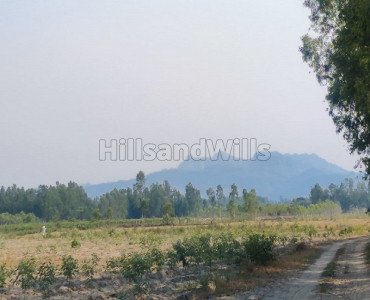
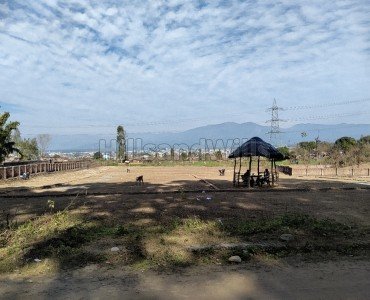


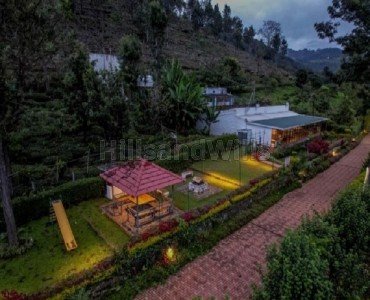

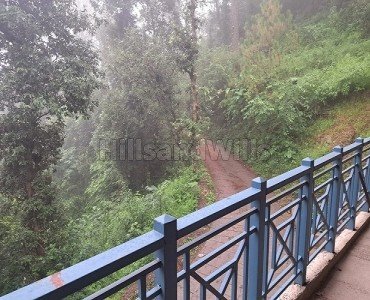


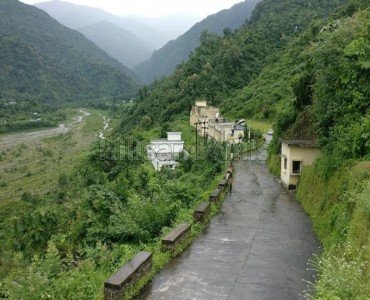
Blog Category